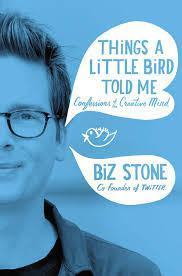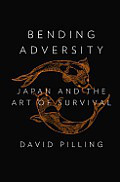New Non-Fiction: Twain, Twitter and Tsunamis
Hey Everyone,
Time for another blow-out, put these all up, quick! post from Kati. Like a fire sale, but with book information.
I don’t know all that much about the San Fran lit-scene (their noise-rock scene? call me, I’d love to chat), historically or otherwise, but this book gave an AMAZING account. It’s as if you got a press release of what’s happening that season not from a publishing company, but just a city itself.
So who’s it about? Or specifically, who’s these folks featured on the cover?
(1) Mark Twain. Really, inspiring stuff about how this guy was NOT even that well liked or received in America and how he was working at newspapers for much of his life. I think a lot of us (at least me) think this guy writes one book; fame is immediate. Not the case. Cool stuff to here.
(2) Bret Harte. A guy I’d never really known much about before this book; apparently a literary ‘golden boy’ with a little bit of an ego. Celebrated in his time, if not that importnat in the long run.
(3) Charles Warren Stoddard. The poor gay poet type. Really, a guy without a home, or any kind of place to call his own. I would have loved to see a story of how San Francisco SAVED HIM, gave him a refuge and all that, but…
(4) Ina Coolbrith. My new lit-hero and the girl I’m planning to read up on more. Seriously – it’s the 1860′s and this girl is organizing meetings and hanging out with TWAIN and all these other cool guys of lit! She reaches icon status.
It’s a interesting read, if hard at times to get a proper footing in the context. But, if you have interest in writers’ circles, how one author influences another, this will be right up your alley.
 Biz Stone’s THINGS A LITTLE BIRD TOLD ME: CONFESSIONS OF A CREATIVE MIND
Biz Stone’s THINGS A LITTLE BIRD TOLD ME: CONFESSIONS OF A CREATIVE MIND
One of the major points of flack this book is getting: Biz Stone is a “co-founder” of Twitter, but it’s really hard to know what that means. And it’s not a totally unfair criticism; from the sounds of it, this guy was assigned to create a system of leaving status people could update from their phones, like Facebook with limited characters and simpler, and he (and his team of who knows who) did it. Don’t question how. He did.
If you can get over that fact, though, Things a Little Bird Told Me is a fun read. It’s the story of this sort-of self-depreciating dork finding his groove in Silicon Valley. Not exactly starting from a dorm room in Harvard, he created Twitter for a paying job (but really? doesn’t the phrase “from a dorm room in Harvard” imply enough proof that poverty is not at stake?) and just grew it from there.
Mixed throughout the story of Twitter’s humble and stumbling beginnings, as well as Stone’s own, are tales of Corporate Kumbaya, or how to work well in the workplace. Don’t get me wrong – that can sound condescending, but it’s totally not. Workplaces need more kumbaya. Offices in general should get along better if they’re gonna blow up like Twitter.
It’s not the most humble book or the most full-picture story like The Social Network may have been, but for fans of Twitter or anyone interested in the way this outlet can spread the news like wildfire, it’s an enjoyable read.
 David Pilling’s BENDING ADVERSITY: JAPAN AND THE ART OF SURVIVAL
David Pilling’s BENDING ADVERSITY: JAPAN AND THE ART OF SURVIVAL
I’m always a bit hesitant with books that offer sweeping generalizations of an entire group of people, whether it be based on gender, race, age, generation, nationality, etc., ESPECIALLY if the person writing that book is outside the demographic in question. So for this book: David Pilling’s originally a Brit, spent years working/living in Japan, and still acknowledges the impossibility of summarizing a population.
That said, this book’s entirely a compliment to the people. Sure, it points out some aspects of the culture Americans/Brits might think “weird,” but overall, it leans to the fact that Japan is a country of contradictions, of people unwilling and unable to be easily packaged and explained.
Starting with the horrors of the 2011 tsunami that destroyed cities along the coast and set off a horrible nuclear reaction, Pilling explains why yes, the country may be down at the minute, but if the past offers any evidence, this nation is far from out. Think about it – both Germany and this island nation lost WWII; Germany’s never made quite the same economic impact as before the war; Japan’s doing just fine, innovating electronics, cars, etc. like the rest of us aren’t even there.
Basically, I loved this quote Pilling ended on, which really sums up the spirit of this whole thing the way a last sentence SHOULD every time: “Two ‘lost decades’ and its manifold problems notwithstanding, reports of Japan’s demise are exaggerated.”






